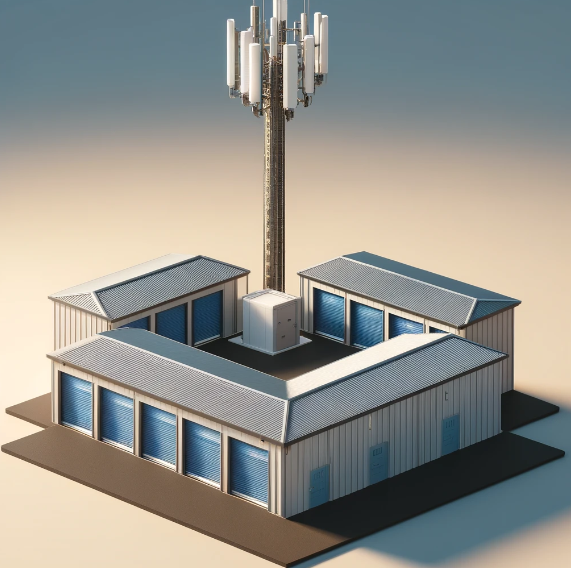Cell Tower Lease faqs
Frequently Asked Questions
At Steel in the Air, we receive some rather common inquiries that we find ourselves giving answers to on a regular basis. Here are some of the frequently asked questions.
If you have other questions that have not been answered here, please feel free to contact us.
Who Does Steel In The Air Work For?
I Have A Proposal From A Carrier For A Lease. When Do I Need To Involve Sita In The Negotiating Process?
We recommend that you involve us after the carrier has contacted you for the second time. The first time they contact you, let them know that you are interested, but you can’t say yes until you know exactly what they are proposing. Here are some questions you should ask: Where is the tower going? What type of tower is it? How much ground space do they need? How much rent are they proposing? What are the lease terms? Is your property the primary site they are looking at? If they have visited the site, and have started the lease exhibit and/or the property survey, the time is right to contact us. They may ask you to agree to the financial terms or even sign a term sheet. We recommend strongly that you don’t agree or sign anything until after consulting with us.
What Is The U.s. Average Cellular Lease Revenue?
What Is The Appropriate Lease Rate For Our Property/building?
I Have A Friend With A Tower In Another State And He Is Getting 3 Times More Monthly Revenue That I Am Getting For My Lease. Why Is That?
How Much Should The Lease Escalate And How Often?
How Long Should The Lease Be For?
Why Do They Have A Right To Terminate The Lease If I Don’t?
Should I Agree To The Right Of First Refusal Clause?
Can You Give Me A List Of Towers In My Area And How Much They Pay Monthly To The Landowner?
The Wireless Carrier Is Offering A Few Hundred Dollars For The Option To Lease My Property. What Should I Agree To?
How Quickly Do I Have To Respond Once They Contact Me?
Who Should Pay For Taxes?
Will My Property Suffer Depreciation Because Of A Tower Placed On The Property?
Will Steel In The Air Handle The Actual Negotiations With The Wireless Carrier / Tower Company, Or Will You Just Act As My Advisor?
The Carrier (Or Tower Company) Has Recently Performed Equipment Upgrades On The Cell Tower. Should They Be Paying Me More For These Changes?
It depends. If they are asking for an expansion of their cell tower ground lease area, then probably. If they own the tower and the upgrades are done within the original, agreed-upon footprint, the typical lease does not require that they pay you additional compensation for upgrading their equipment. On rooftop cell site lease modifications, the issue is more complex and depends upon the specific modifications and the specific lease language. We have assisted many property owners in figuring out whether they can ask for additional compensation and, if due, have helped them get it.
Please send us your lease and we will be happy to take a look, and tell you (at no cost) whether it is worth your time to pursue the matter. If you have forwarded your lease to other consultants and received the high-pressure sales pitch from them after doing so, don’t worry. That is not our style. We will tell you what we can do, what it will cost, and then follow up to make sure you don’t have any questions.
My Lease Doesn’t Expire For Years, So Do I Have To Agree To An Extension At This Point Time?
- The cell site your lease is tied to will be forwarded to their Alternative Site Relocation Department (and removed from your property).
- Other wireless carriers will not elect to collocate on the cell site (because the lease term is not long enough to make it worth their while), therefore the tower and your lease will depreciate in value.
My Lease Doesn’t Expire For 8 Years. Do I Have To Agree To Their Request To Renegotiate The Lease Now?
Why Don’t I Have Revenue Sharing On My Lease (Or My Proposed Lease)?
When revenue sharing terms are added to a cellular lease, it means that the Lessee (the tower company or carrier) will share a percentage of the revenue it receives when additional tenants are added to the cell site. If you have been doing research on the web, you may have come across other websites that suggest that every lease should include revenue sharing, and you may be feeling foolish that yours does not. You may have heard stories from friends, neighbors or associates that have towers on their property about how much extra revenue they get from revenue sharing. It’s true – revenue sharing is definitely valuable. Some of our clients generate over $100,000 a year with leases that include revenue sharing, however the reality is that fewer than 20% of all leases have some type of revenue sharing. Of the 80% that do not have revenue sharing, a small portion of them could have added it, if only they had asked. The rest, however, would have forfeited the tower if they had insisted on adding a revenue sharing clause to the lease. Today, the ratio of leases with revenue sharing is even smaller, meaning that significantly less than 20% of new leases contain revenue sharing. Tower companies only offer revenue sharing as a last resort, and carriers will do their best to avoid including it, because they know that it devalues the tower.
Fortunately, this doesn’t mean that it’s impossible to add revenue sharing to your lease. If you have a lease and the tower company or carrier wants to extend it, you may be in the position to request that revenue sharing be added. We can help you gauge what percentage of the revenue you should ask for and, more importantly, whether you want it or not. Suppose that you could look into the future and determined that there would never be another wireless carrier leasing space on your tower; would you ask for a share of the revenue then? Conversely, if you knew that your site was likely to have another four carriers interested in it over the next 5 years, how hard would you push for revenue sharing? That is where we come in. Between our cell tower location database and our ability to review sites anywhere in the US, we can provide an educated guess on what the future tenant prospects are for your specific location. Then we can tell you, not only whether you should push for revenue share but, how hard you should push, and what the value of that revenue share would likely be over time.
Call us or email us today. We will be happy to review your situation at no cost and let you know if this is something that we can help you with.
There Are More Companies (E.g., Wireless Carriers) Using My Tower, Why Am I Not Getting Any Additional Rent?
I Have Offers From Companies Who Are Interested In Buying My Lease. Can You Get Me A Better Price?
I Have Received Numerous Calls From Multiple Companies Regarding Purchasing My Lease. How Do I Evaluate These Offers?
I Am Considering Selling My Lease, And The Buyer Has Offered Revenue Sharing Of Future Tenants. How Likely Is It That They Will Find Other Tenants?
Can You Recommend A Company To Market My Property/tower For A Tower Or Tenants?
If you are already engaged in a wireless lease with a wireless carrier or cell tower company, then your property currently exists in more than one database. Wireless carriers already know where you are and you will likely be the first landowner approached when they are ready to expand or augment their existing networks, because you have already been through the zoning approval process.
Cell site leasing is a complicated business. The only possible way marketing could be effective is in the case where the company who wishes to market your lease represents a wide base of wireless carriers who desire to expand their networks into your particular area. In addition, only tower owners can market cell sites, so if you are not the tower owner, nothing can be done.
If you’ve received a solicitation from a third party company who suggests that they will market your property, they are probably interested in something else entirely – a lease buyout, and a percentage of future revenue that might come from carrier collocation.
In the world of cell tower leasing, patience is a virtue. There is no use spinning your wheels in an attempt to entice a carrier to use a property that doesn’t fit their network infrastructure needs. So rather than giving up 25% or 50% of your future revenue, we recommend that you just sit tight.
Is The Money From The Sale Of My Lease Classified As Ordinary Income Or Capital Gains?
If I Sell My Lease Rights, Who Is Responsible For Paying Property Taxes?
How Will The Easement Affect My Property If I Decide To Sell The Property?
Will The Information I Provide Remain Confidential?
What Are Your Fees To Help Me?
How Can I Reach A Carrier?
Wireless carriers have many departments (marketing, engineering, sales, customer service, etc.), so it would depend upon your question. If you’re interested in getting a cell tower on your property so that you can benefit from passive rental income, you should know that this is not as easy as it sounds. These articles might be of assistance:
I’ve Bought Property With A Cell Tower On It, How Do I Start Collecting Rent On?
Please see our page on what to do when you buy property with a cell tower on it.










